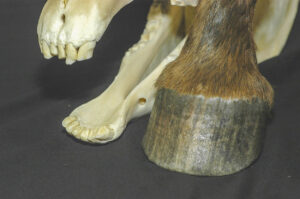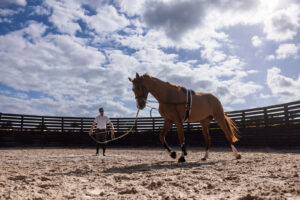South Carolina Confirms First 2019 WNV Case

About West Nile Virus
West Nile virus transmission occurs when infected mosquitoes feed on animals, as well as humans, after having fed on infected birds.
Clinical signs of WNV in horses include:
- Mild anorexia and depression
- Fine and coarse muscle and skin fasciculation (twitching);
- Hyperesthesia (hypersensitivity to touch and sound);
- Changes in mentation (mentality), when horses look like they’re daydreaming or “just not with it”;
- Occasional drowsiness;
- Propulsive walking (driving or pushing forward, often without control); and
- Spinal signs, including asymmetrical weakness; and
- Asymmetrical or symmetrical ataxia (incoordination).
West Nile virus has no cure; however, some horses can recover with supportive care. Equine mortality rates can reach 30-40%. The American Association of Equine Practitioners includes WNV as one of the core diseases all horses should be vaccinated against at least annually
Create a free account with TheHorse.com to view this content.
TheHorse.com is home to thousands of free articles about horse health care. In order to access some of our exclusive free content, you must be signed into TheHorse.com.
Start your free account today!
Already have an account?
and continue reading.
Related Articles
Stay on top of the most recent Horse Health news with

















